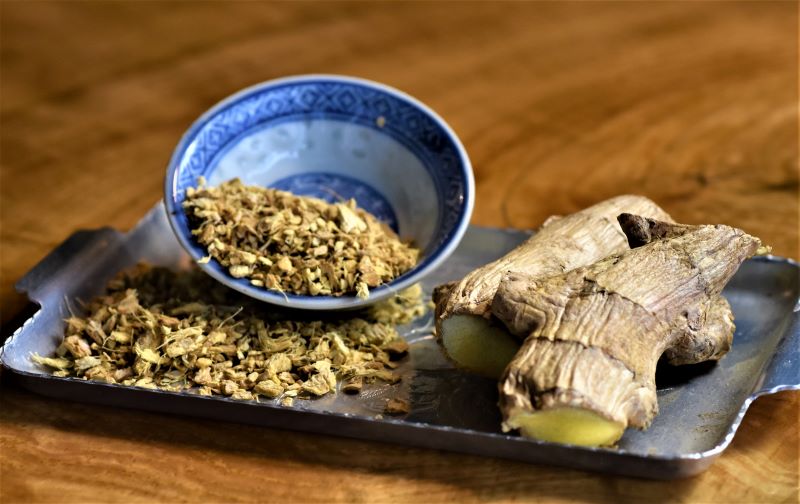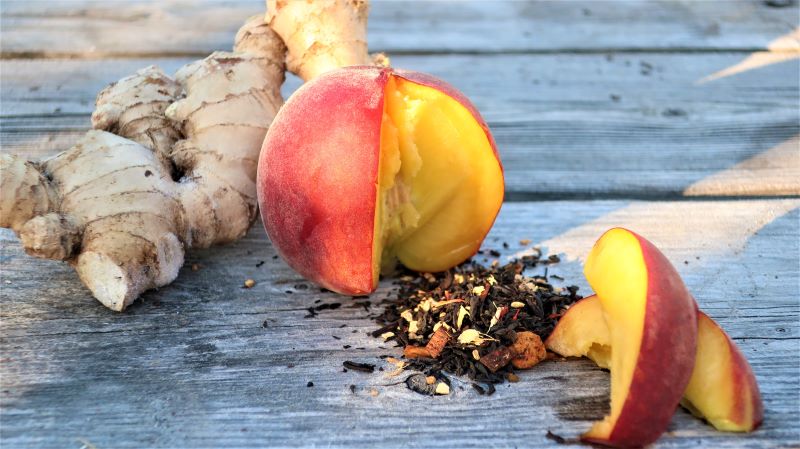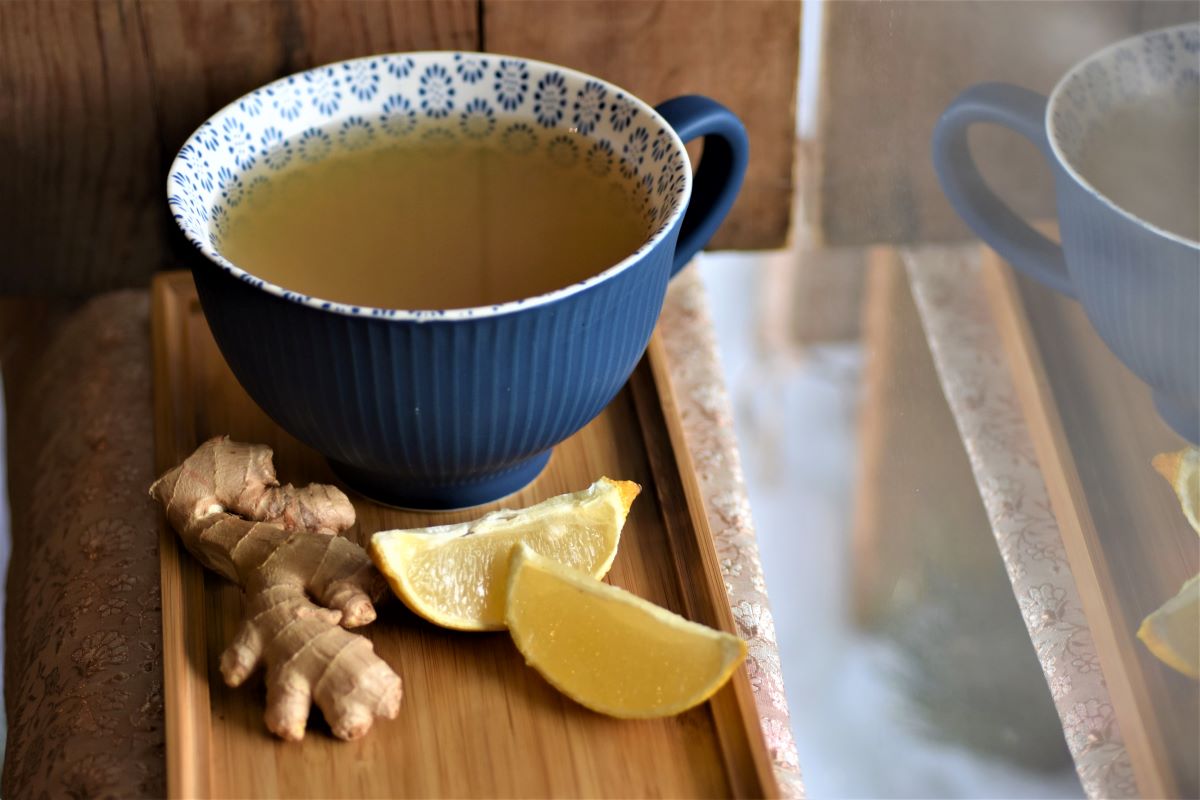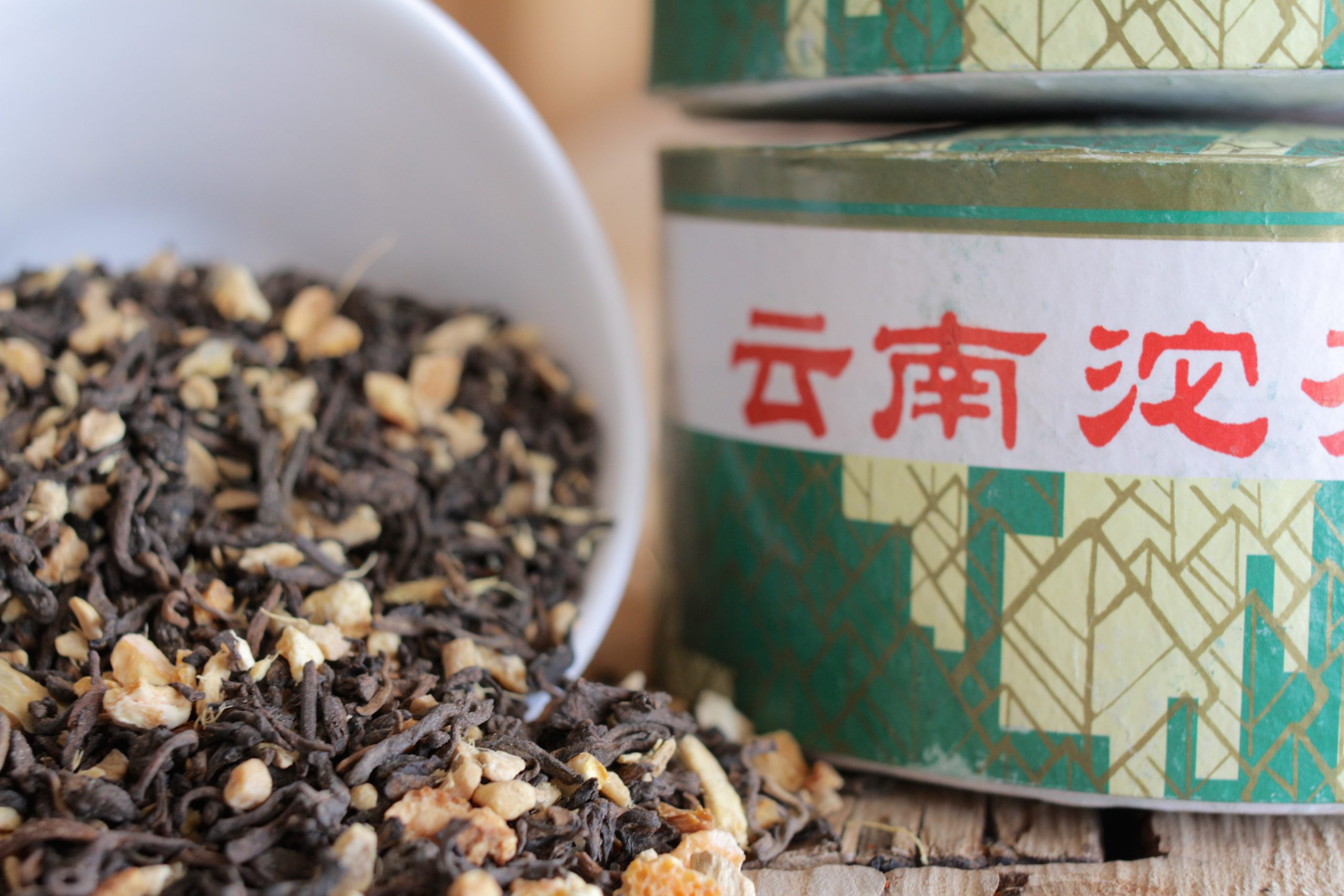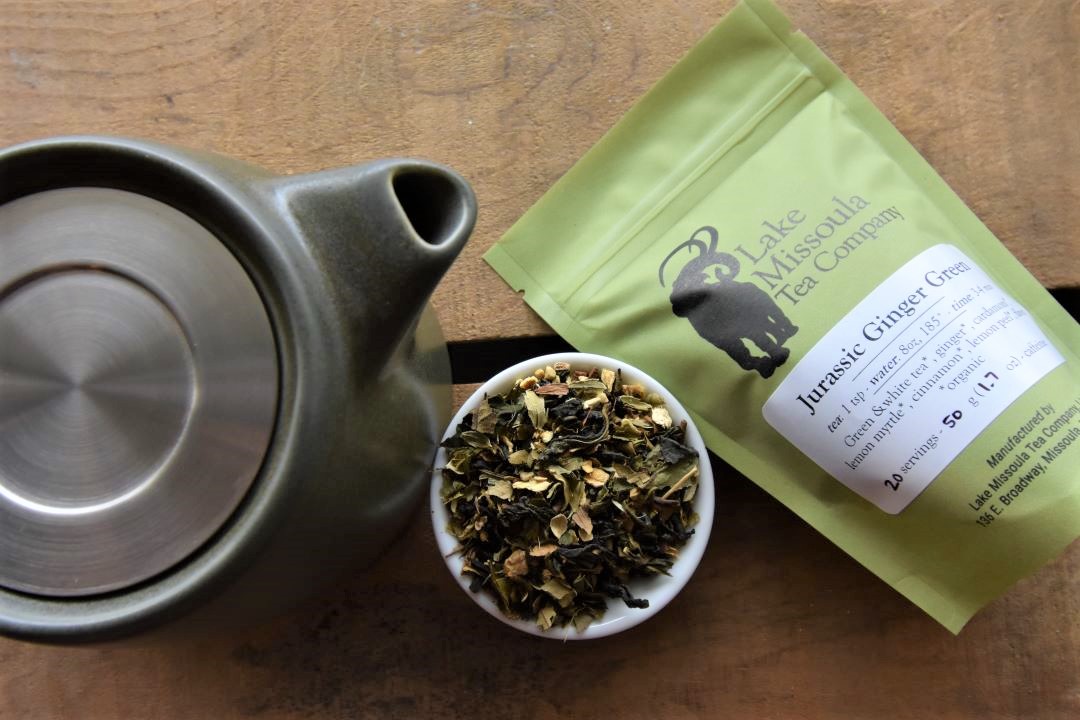We call ginger the spice of life for good reason. People know ginger (Zingiber officinale) all around the globe. It adds a spicy flavor to dishes, and works as a remedy for many ailments. Here at Lake Missoula Tea Company, we revere ginger and its medicinal properties. We incorporate it in many of our small batch tea blends. Learn more about this popular plant, its medicinal uses, and our favorite tea blends that include ginger!
Origins
Known for its bulbous appearance, ginger “root” is actually a rhizome, a continually growing underground stem. The ginger family (Zingiberaceae) also includes turmeric, cardamom, and galangal. Galangal is often referred to as “Thai ginger” because of its similarities to true ginger. There are nearly 1600 species in this family, widely cultivated in South Asia and throughout tropical Africa, Asia, and the Americas. Primary countries that cultivate ginger include Nigeria, India, Thailand, and Indonesia.
Ginger is a tropical plant that rarely blooms. Instead, it produces green, reedy stalks 3-4 feet tall with wide leaves. Growing, harvesting, and storage methods greatly influence ginger’s flavor. As such, cultivators grow several dozens of varieties for the spice trade, each with their own distinct reputations.
Historical View
Due to its spicy nature, people have used ginger medicinally for thousands of years. In cultures using Traditional Chinese Medicine, there are records incorporating medicinal uses of ginger as early as 2000 BCE. In Ayurveda (a whole-body, natural system of medicine), ginger is regarded highly because it works on all tissues of the body—but primarily the digestive and respiratory systems. Because of its wide-reaching potency, it was called vishwabhesaj, “the universal medicine.” Ginger infusions were the base of the widely popular Chai tea and were adopted for medicinal use in Europe after arriving via the earliest trading routes (along with nutmeg, cloves, and cinnamon). Beer brewers have used ginger to flavor beer since the Middle Ages. It also adds heat and spiciness to herbal liqueurs, bitters, and vermouth. Eaten as a food, ginger promotes digestive and general health.
Medicinal Uses
Ginger’s taste is pungent to say the least! Energetics of this plant are warming and drying, and so ginger supports gastrointestinal function, reduces inflammation, and aids circulation. It also helps with nausea, motion sickness, heartburn, bloating, dyspepsia, constipation, and colic. Ginger breaks down blood clots, and may help prevent heart attacks. Dried ginger root powder is significantly more warming than fresh juice. Dried ginger powder, rehydrated into a paste, is a good external plaster for pain and headaches. For muscle or joint injury, add ginger powder to the bath with baking soda and Epsom salt.
Fresh ginger is a potent antiviral and antibacterial. It is helpful for treating influenza, the common cold, and both bacterial and viral gastroenteritis. For those wishing to use herbal sources, ginger is a good domestic remedy for the common cough, cold, and breathlessness. To create a powerful healing drink, mix 4 oz fresh ginger juice with equal parts hot water. Add honey and lemon to taste, and drink up to 3 times per day. You can freeze the fresh juice in ice cube trays for later use.
People with intense stomach issues should be careful with ginger. It promotes the production of bile, so people with gallstones or ulcers should use ginger cautiously.
Tea Blends Featuring Ginger
We LOVE adding ginger to our tea blends! We use it for its fun spicy pop of flavor and medicinal qualities. One of our blends is Spicy Ginger Snap. This tea is perfect for ginger lovers of all kinds, and is a great base to create a cold-busting remedy of your own. Our Jurassic Ginger Green and Ginger Orange Puerh are caffeinated blends that promote digestion and anti-nausea, while our Zen Cleanse and Joint Peace herbal blends utilize ginger for its cleansing properties. You can also brew ginger on its own, or add a pinch to any beverage that needs a bit of spicy warmth. Last but not least, our popular Sunshine Daydream black tea is a ginger peach blend, formulated simply for good taste and a zesty ginger zing of afternoon fun!
Read more herbalism blogs by Greta de la Montagne here on our blog page, and watch for new quarterly herbalism blogs.
Written by: Greta de la Montagne
Edited by: Boo Curry & Heather Kreilick

